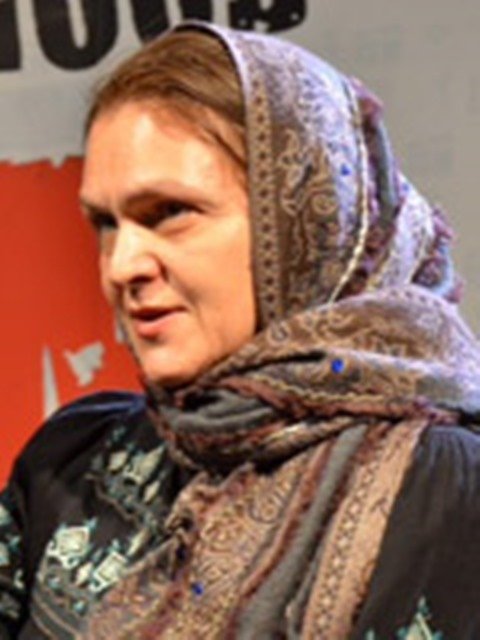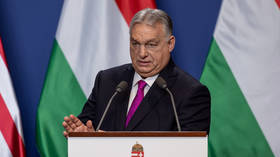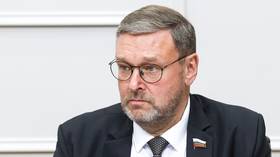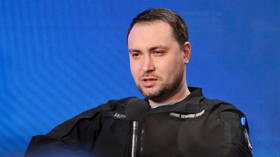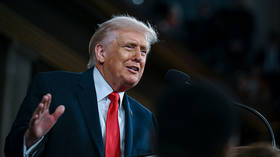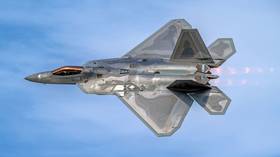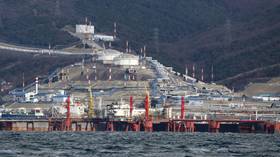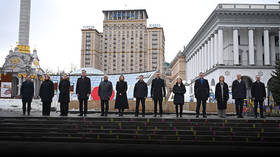Revolution is over: Iran votes for easing tension and negotiations
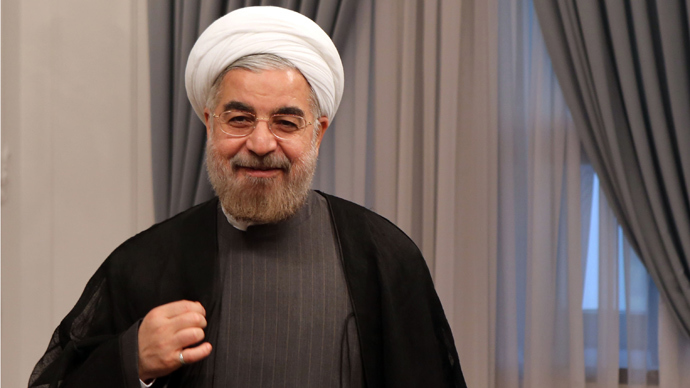
In his inauguration speech, president of Iran Hassan Rouhani announced a policy of easing tension, moderation and negotiations. Without mentioning the US, he called on that nation to abandon the language of sanctions in favor of the language of respect.
This speech will surely be studied in the minutest detail in the
United States, but it is already clear that we’re talking about a
180-degree turn away from the policies of Ayatollah Khomeini that
were maintained by Mahmoud Ahmadinejad who got his support 8
years ago from war veterans, families of fallen martyrs,
superiors in the Revolutionary Guards and revolutionary students.
For the first time, an Iranian president made no mention of the nuclear program, the only issue all differently-minded Iranians inside and outside Iran agree upon.
Rouhani quoted the Quran and the hadith of the prophet Muhammad, having taking care to select the most peaceful and uncontroversial sections.
Among others, Rouhani quoted the Prophet Muhammad’s words “the ones who open their doors for the good are the ones to cooperate with and not to fight against.” The notion of the good is a controversial one in Islam that has developed notions of statehood, personal life, rights and duties dramatically different from those shared in the West.
A good half of the president’s speech was made in the form of an
address to the United States. Statement after statement,
Rouhani kept assuring the masters of the world of Iran’s
readiness to be mild, sensible and welcoming of any solutions.
The readiness to step back on many things was clear from the
rhetoric.
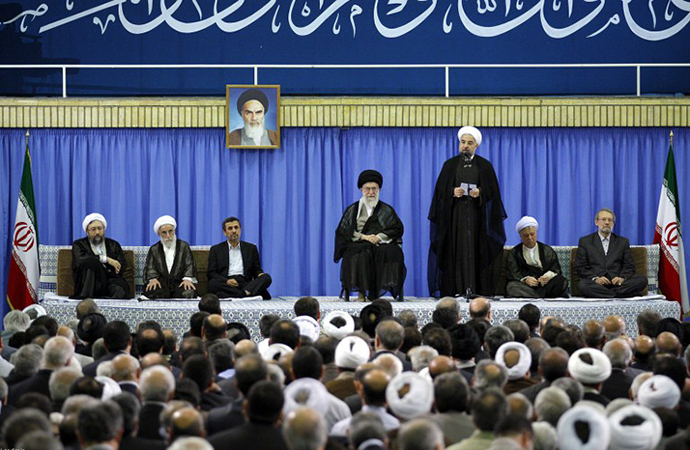
Rouhani neither mentioned the Islamic Revolution, nor quoted Ayatollah Khomeini. He never mentioned Iran’s right to a civil nuclear program, or solidarity with Palestine, Syria, Lebanon or Hezbollah. He didn’t say anything about Iran’s consistent position on revealing the truth about mass murders, torture, ethnic and sectarian cleansings of the Shia Muslims and Muslims in general organized by the USA and its allies. He never mentioned the most inflaming of political topics i.e. the series of revolutions that rocked the Islamic world, although since 2010 Iran has had claims to actually be leading the process that is known in Iran as the “Islamic Awakening.”
Dozens of guests at the inauguration could not help but understand from the speech that the new regime was ready to turn back on all of its former allies – and among the guests were representatives of Hamas, Lebanon, Hezbollah, prime-minister of Syria, and leaders of Afghanistan and Pakistan.
The audience was silent; there were no outbreaks of applause during the speech. Few people cheered when Rouhani finished.
The regime’s announcement of an era of sensible government ended by disappointing many of those who hoped that Iran would stay true to the values of the Islamic Revolution.
After Gorbachev, this kind of rhetoric means only one thing – capitulation in the hope of being forgiven for being politically independent for the past 34 years.
Rouhani decided not use the two-week period given for selecting cabinet members and provided a list of ministers, all of them so-called “reformers.”
Chairman of the parliament Ali Larijani wished Rouhani to “be as speedy in restoring order in all other areas.”
Rouhani, who won by a small margin, also said that in selecting him the Iranian people made clear what policy they wanted, that being the policy of moderation. However, during his election campaign Rouhani, who’s victory was originally seen as an outside chance, positioned himself as an experienced negotiator with the West – and never as someone who would simply give up all positions on the enemy’s terms.
The statements, views and opinions expressed in this column are solely those of the author and do not necessarily represent those of RT.
The statements, views and opinions expressed in this column are solely those of the author and do not necessarily represent those of RT.
